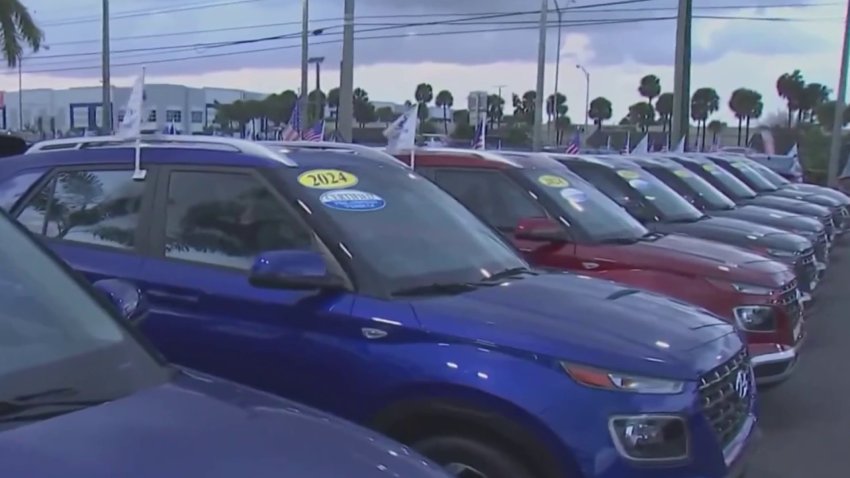Panic is setting in at the grocery store as shoppers brace to pay even more for much of what they need. President Trump’s newest tariffs start at a 10 percent tax on all imported goods. NBC6’s Marissa Bagg reports
South Florida shoppers are on a conveyor belt to higher prices on goods imported into the United States.
President Donald Trump put a 10% tariff on international products and a higher reciprocal tariff on countries like China and the European Union.
Watch NBC6 free wherever you are
Half of what’s on the shelves at Yes! Kosher Market in North Miami Beach comes from other countries. Owner Sam Salem says he will have to charge his customers up to 25% more.
“I think more of a panic right now from what people are thinking is going to happen and how much things are going to cost is what is making people nervous,” Salem said.
Get local news you need to know to start your day with NBC 6's News Headlines newsletter.

The tax on imports affects groceries, clothing, electronics and cars, even spruce lumber from Canada.
“The margins aren’t like your retail fashion store, these are very tight margins. If it goes up 5% for me, it goes up 5% for the end user as well,” said Jose Alvarez at Shell Lumber and Hardware in Hialeah.
Local
Trump insists the tariffs will drive manufacturing and jobs back to the United States, but many economists say the tariffs will cost consumers and hurt the economy.
Shoppers cringe to think of paying more for what they rely on.
"Becoming very difficult to make a normal living with these high prices,” said Hermann Canter.
“We are suffering enough, and it’s just ridiculous,” said Opal Hall. “Eggs being $10? We have to treat eggs like gold now.”
As prices rise over the coming weeks and months, finding places to save is key.
“People are going to get sticker shock when they see the total at checkout,” said Kristin McGrath, Senior Editor at The Krazy Coupon Lady. “It’s extra important to coupon and save where you can. Join store loyalty programs, think about where you shop, compare prices across retailers. People are going to have to put a lot more effort into saving than they used to.”



